Interview: James Beaman of LIVED EXPERIENCE at The Triad
"I was part of a really, really spectacular time in New York."
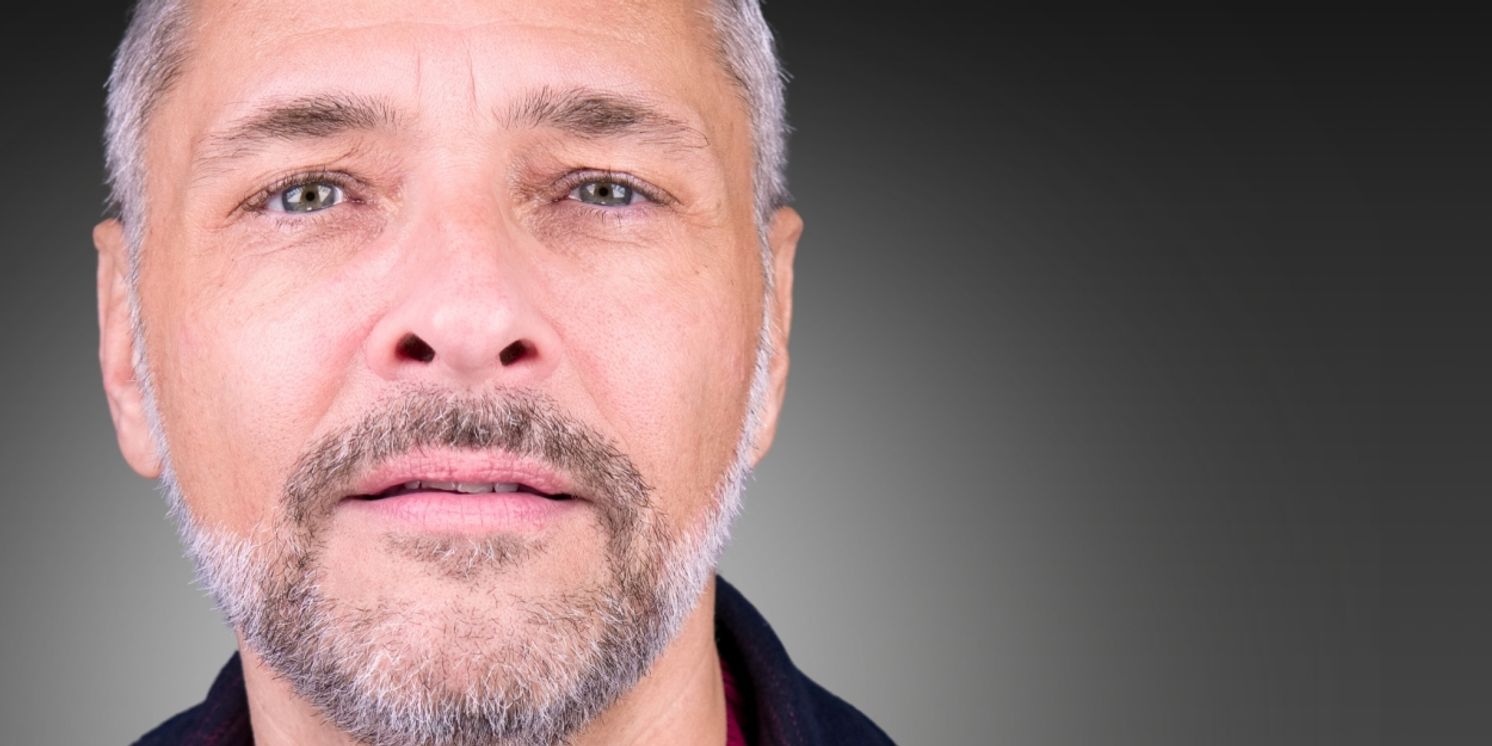
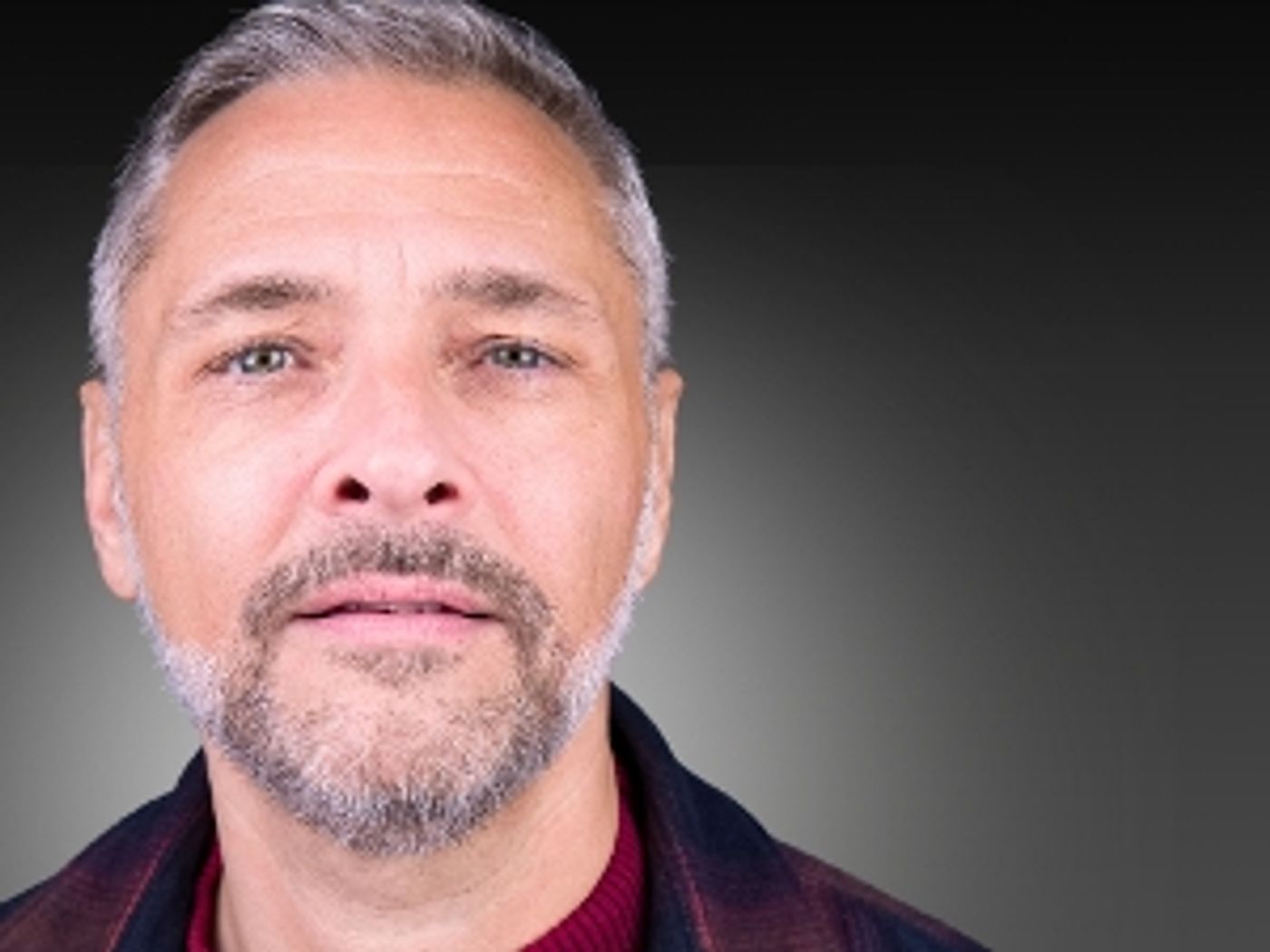 In the advertising for his upcoming musical cabaret, James Beaman has wisely applied the catchphrase "Everybody Loves A Comeback." Well, in the case of James Beaman, it's a comeback for which people have been waiting. A prolific artist of the cabaret scene of the Nineteen Nineties, James Beaman, one day, took off his wig, put down his lipstick, and said goodbye to Marlene Dietrich, Lauren Bacall, and his MAC Award winning cabaret career to take a mid-life trip back to school and back to the boards. With a new degree in the works of Shakespeare, Beaman entered into a life upon the wicked stage and spent the next twenty years as a working actor.
In the advertising for his upcoming musical cabaret, James Beaman has wisely applied the catchphrase "Everybody Loves A Comeback." Well, in the case of James Beaman, it's a comeback for which people have been waiting. A prolific artist of the cabaret scene of the Nineteen Nineties, James Beaman, one day, took off his wig, put down his lipstick, and said goodbye to Marlene Dietrich, Lauren Bacall, and his MAC Award winning cabaret career to take a mid-life trip back to school and back to the boards. With a new degree in the works of Shakespeare, Beaman entered into a life upon the wicked stage and spent the next twenty years as a working actor.
These days, though he is still a working actor, James (or, sometimes, Jamie) has been working his way back into the small venue scene where, once, his Bacall and Dietrich impressions opened every door, but this time as a director... until October 19th, upon which day James Beaman will step back onto the cabaret stage for the first time in twenty years. As he prepares for the debut of his musical cabaret LIVED EXPERIENCE, Jamie took a call from Broadway World so that we could chat about the experience of walking away, the experience of starting anew, and the experience of coming back.
Reserve seats for LIVED EXPERIENCE HERE.
This interview has been edited for space and content.
James Beaman, welcome to Broadway World!
Thank you!
And welcome back to the cabaret stage.
My goodness. Yes, thank you.
You're still working in cabaret because - how many shows did you direct last year? You have many good clients out there.
I think, in the past year, I've directed seven shows.
So you are still in the thick of it, it's just that you haven't been on that side of the footlights for a minute.
20 years. (Laughing)
20 years.
Yeah. I've had an entire career outside of New York, and this is my first time back on stage in New York in anything since 2013.
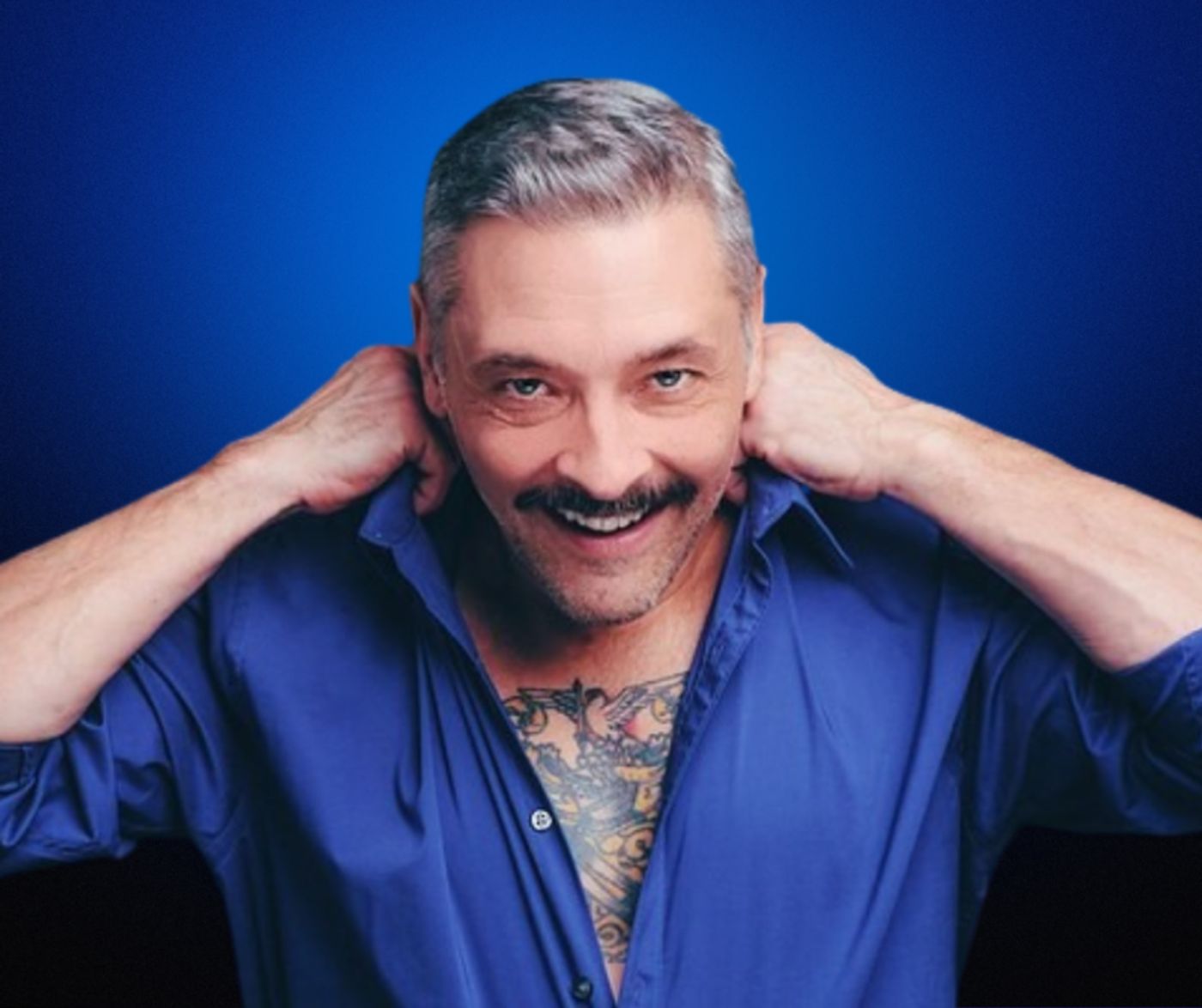
You were deeply entrenched in the cabaret scene in the Nineties, and then you said, “I want to go out on the legitimate stage” and you went back to school.
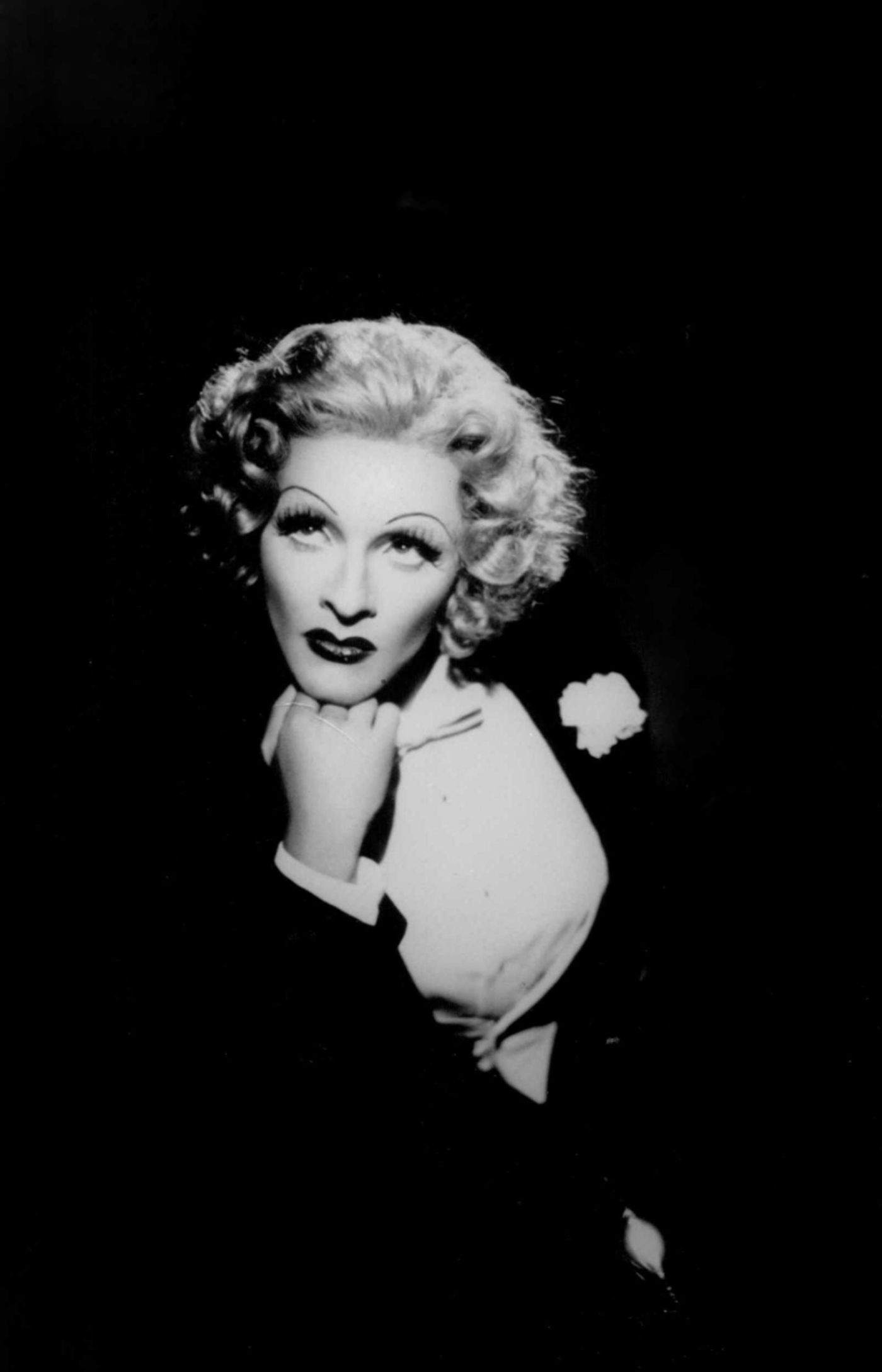 It's interesting 'cause there was sort of a legend around my retiring from the cabaret stage and there's some people who probably still think that I was thumbing my nose at something, but I wasn't. What happened was I had gotten my Marlene Dietrich impression to the peak of whatever it was going to be. And I was trying to take two of my Marlene shows, the Black Market Marlene Show and the Café de Paris Show, and book them as a double bill, then take them into a theater. I had investors coming to see me perform at The Firebird and everything. And then Siân Phillips came in with Pam Gems’ play Marlene on Broadway, and it flopped. And all of my potential investors ran for the hills. I realized that the thing I really wanted to do with the Marlene show was not gonna happen. I had gone through bankruptcy after 9/11, I lost my job, and I was $25,000 in debt on a Visa card, which I had been using to support my Marlene Dietrich addiction, and I had to regroup and rethink. I decided to audition for graduate school at the Shakespeare Theater in DC because it was a one-year master's and it was Shakespeare, classical theater that I always loved. They accepted me, they found me money, my family co-signed loans, and I went and got my Master's Degree. I came out thinking I was gonna do Shakespeare for the rest of my career. I ended up doing musical theater. (Laughing)
It's interesting 'cause there was sort of a legend around my retiring from the cabaret stage and there's some people who probably still think that I was thumbing my nose at something, but I wasn't. What happened was I had gotten my Marlene Dietrich impression to the peak of whatever it was going to be. And I was trying to take two of my Marlene shows, the Black Market Marlene Show and the Café de Paris Show, and book them as a double bill, then take them into a theater. I had investors coming to see me perform at The Firebird and everything. And then Siân Phillips came in with Pam Gems’ play Marlene on Broadway, and it flopped. And all of my potential investors ran for the hills. I realized that the thing I really wanted to do with the Marlene show was not gonna happen. I had gone through bankruptcy after 9/11, I lost my job, and I was $25,000 in debt on a Visa card, which I had been using to support my Marlene Dietrich addiction, and I had to regroup and rethink. I decided to audition for graduate school at the Shakespeare Theater in DC because it was a one-year master's and it was Shakespeare, classical theater that I always loved. They accepted me, they found me money, my family co-signed loans, and I went and got my Master's Degree. I came out thinking I was gonna do Shakespeare for the rest of my career. I ended up doing musical theater. (Laughing)
You did some Shakespeare, you did some musical theater and you did some national tours. You have been living the life of a working actor.
It's very rare that an actor works full-time. I was working about six to eight months out of the year, in a good year, all around the country. I toured for two years with Spamalot, saw the country, saw Canada and that was awesome. I was thinking a lot about this, this week - it's not really coming back to cabaret as a performer, but I'm coming back with 20 years of seasoning. I'm doing things in the show that no one's ever seen me do, in this community. I hope people will enjoy it.
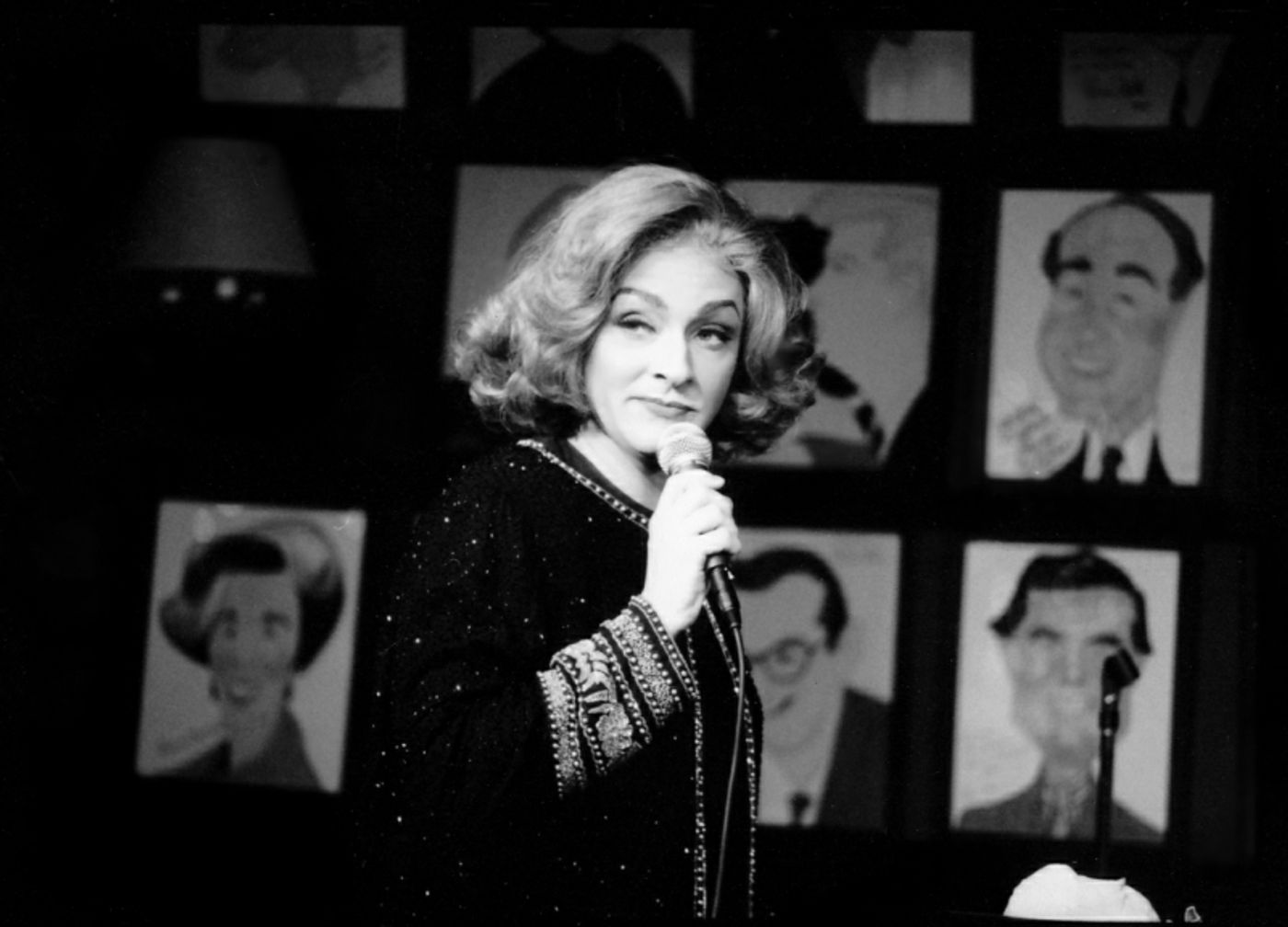 As you've been plying your craft as a cabaret director, what has it been that's made you want to get back up on the stage yourself?
As you've been plying your craft as a cabaret director, what has it been that's made you want to get back up on the stage yourself?
It's a full-circle thing. Cabaret was what brought me to New York. It's what got me noticed in the first place. I was doing the Lauren Bacall show on Monday nights for two people, commuting from Boston for a few months. And the people from Whoop-Dee-Doo! saw me and needed someone to come and swing all of the nine tracks in the show because they also needed somebody who could do an impersonation - Tommy Femia had a feature in the second act as Judy (Garland), and they needed somebody who had something in their pocket. So I had to move here with three weeks' notice because they were going into previews. So cabaret was a way for me to get on stage and do something of my own. It propelled me forward. Now that I've been working with performers as a director and learning about what it means to personalize material and to tell a story - my mantra that I give to my performers is, ultimately it has to be about the audience. How are they changed .jpg?format=auto&width=1400) by what you are sharing and how do you want them to feel when they leave? What I learned after Covid happened (and it was a very devastating few years), working with Goldie Dver, who pulled me out of all of that and gave me something to focus on and work on, and all of these fabulous other performers… that, combined with some social cultural commentary stuff that I've been writing for Substack with a small readership, where I'm getting to talk about some things that, apparently, you're not allowed to talk about. That, combined with seeing how rich and wonderful it can be to create something of your own that is what you wanna say, exactly the way you wanna say it... I need to find my voice again. I need to make a stand for my work again because I think a lot of us have had the stuffing knocked out of us the past few years. My show is for everybody, but it's largely for people fifty and up, who are disappearing. They may be feeling obsolete, they may be getting shuffled off to the margins, they may feel they don't have anything else to say or do: just do it, do it, do it, do it. It's not too late. You can step out and do something because we know what the alternative is. So that's what inspired the show. I was going through a tough time. My mother passed away last year and the anniversary of her death was coming up. And I was really floundering. So, after having directed Jesse Luttrell at the Triad and seeing what they had done to soup up that space with the beautiful lighting package and everything, I thought I'd like to do a little theatrical cabaret, maybe. So I took the dates - this was back in March - I took the October dates and thought, “Well, if I build it…” And now it’s weeks out and I'm freaking out.
by what you are sharing and how do you want them to feel when they leave? What I learned after Covid happened (and it was a very devastating few years), working with Goldie Dver, who pulled me out of all of that and gave me something to focus on and work on, and all of these fabulous other performers… that, combined with some social cultural commentary stuff that I've been writing for Substack with a small readership, where I'm getting to talk about some things that, apparently, you're not allowed to talk about. That, combined with seeing how rich and wonderful it can be to create something of your own that is what you wanna say, exactly the way you wanna say it... I need to find my voice again. I need to make a stand for my work again because I think a lot of us have had the stuffing knocked out of us the past few years. My show is for everybody, but it's largely for people fifty and up, who are disappearing. They may be feeling obsolete, they may be getting shuffled off to the margins, they may feel they don't have anything else to say or do: just do it, do it, do it, do it. It's not too late. You can step out and do something because we know what the alternative is. So that's what inspired the show. I was going through a tough time. My mother passed away last year and the anniversary of her death was coming up. And I was really floundering. So, after having directed Jesse Luttrell at the Triad and seeing what they had done to soup up that space with the beautiful lighting package and everything, I thought I'd like to do a little theatrical cabaret, maybe. So I took the dates - this was back in March - I took the October dates and thought, “Well, if I build it…” And now it’s weeks out and I'm freaking out.
You still freak out?
Are you kidding? Yes, of course. (Laughing) I tell people all the time, I'm a recovering perfectionist. It's not about my vanity. It's not about proving anything to anyone. It's about realizing my vision. I've been carrying this setlist around for months and I know exactly how I want it to play out, what I want it to look like, what I want it to feel like. It's the execution of it. I was in pretty great shape when Covid came along and, you know, three years of relative stagnation and depression and going through a lot of life changes and stuff has left me a little soggy. So, it's a good way to sort of rouse myself. But the important thing, really, is the vision and the message. That's the important thing.
Back in the day, did you work with a director?
.jpg?format=auto&width=1400) No. Once I started doing Marlene, I felt her from the inside out. I never worked in a mirror. I didn't want to just do an imitation of something. I wanted to exude it. I wanted to feel it from the inside. I was just lucky I had David Maioco, who is a brilliant genius who feels everything with you 'cause he's an actor and a brilliant musician. And I was lucky to have amazing lighting and sound people like Matt Berman and Michael Barbieri, so they took care of that stuff. It had a magical quality to it. It inspired people to join in creating the illusion and the atmosphere of her. It was kind of a charmed thing. I don't have a director this time either (Laughing) but I've been lucky that Ann Cooley, who's come on as choreographer, is a brilliant woman and a great director in her own right: she's gonna be my eyes and ears out front, so that I don't have to worry about that stuff. I trust her implicitly.
No. Once I started doing Marlene, I felt her from the inside out. I never worked in a mirror. I didn't want to just do an imitation of something. I wanted to exude it. I wanted to feel it from the inside. I was just lucky I had David Maioco, who is a brilliant genius who feels everything with you 'cause he's an actor and a brilliant musician. And I was lucky to have amazing lighting and sound people like Matt Berman and Michael Barbieri, so they took care of that stuff. It had a magical quality to it. It inspired people to join in creating the illusion and the atmosphere of her. It was kind of a charmed thing. I don't have a director this time either (Laughing) but I've been lucky that Ann Cooley, who's come on as choreographer, is a brilliant woman and a great director in her own right: she's gonna be my eyes and ears out front, so that I don't have to worry about that stuff. I trust her implicitly.
When one talks about having a choreographer for their cabaret show, it conjures up grand visions of a nightclub.
%203.jpeg) The original vibe I wanted to do was kind of like Playboy After Dark. It's kind of suave, kind of elegant, but it's late in the evening. We've all had a little to drink. Bow ties are untied. It’s a swanky kind of feel but sprinkled liberally with Peter Allen's glitter. It's gonna have a kind of a showman thing, but it's also gonna have the intimacy of a Noel Coward cabaret - standing at the piano and holding court. There's gonna be some choreo. I'm gonna dance. I've got a big video installation that I'm creating that's going to be a sort of centerpiece of the show, and it's gonna be a retrospective look at my drag career, with a track - it's the song “This Was Me” from Everybody's Talking About Jamie, which is the song that the veteran drag queen sings about who he was back in the day, in the drag world. I was lucky. I was part of a really, really spectacular time in New York for gay culture, and for drag, in particular. I hope people who were there will appreciate seeing all these old pictures and videos and stuff - that's as far as I'm going, in terms of impersonation. People are like, “Oh, you're doing Marlene!” I'm like: No. But I want to do a tribute to it because there's a whole generation of young folks who, unfortunately, don't know as much as they should or could about where we've come from, in our culture. I want it to feel like one of those variety shows that you and I grew up with.
The original vibe I wanted to do was kind of like Playboy After Dark. It's kind of suave, kind of elegant, but it's late in the evening. We've all had a little to drink. Bow ties are untied. It’s a swanky kind of feel but sprinkled liberally with Peter Allen's glitter. It's gonna have a kind of a showman thing, but it's also gonna have the intimacy of a Noel Coward cabaret - standing at the piano and holding court. There's gonna be some choreo. I'm gonna dance. I've got a big video installation that I'm creating that's going to be a sort of centerpiece of the show, and it's gonna be a retrospective look at my drag career, with a track - it's the song “This Was Me” from Everybody's Talking About Jamie, which is the song that the veteran drag queen sings about who he was back in the day, in the drag world. I was lucky. I was part of a really, really spectacular time in New York for gay culture, and for drag, in particular. I hope people who were there will appreciate seeing all these old pictures and videos and stuff - that's as far as I'm going, in terms of impersonation. People are like, “Oh, you're doing Marlene!” I'm like: No. But I want to do a tribute to it because there's a whole generation of young folks who, unfortunately, don't know as much as they should or could about where we've come from, in our culture. I want it to feel like one of those variety shows that you and I grew up with.
I love those shows.
It's gonna be like one of those old nightclub acts that has a theatrical slant to it.
Did you miss doing this kind of work?
I'm a different person now. Even when I sang with myself, back when we did Crazy World, back in 2002, I was still shape-shifting and taking on different characters. It wasn't me engaging with the audience, me, as myself, in my voice, sharing. So this is new for me. I'm used to hidng behind the character. I think it's a testament to the brilliant people I've worked with and their courage and the collaboration that we have had, with me as a director, that has really inspired me to be brave, as well, and to go out there and be myself and see what happens.
I feel like I'm coming back from the wilderness with some gifts to offer, and I don't think that people know who I am, as a performer, in New York, and certainly in the cabaret world. I don't think people have a sense of that. So I'm not out to blow anybody's mind. I just want to blaze a new path for myself, because the past few years have really tested me. My optimism, which I always had, has really been tested.
I think that it is important to always continue to grow personally and artistically. And it's important to continue to push those boundaries.
%202.jpg?format=auto&width=1400) Yeah. And I don't want to burden the conversation with a lot of sociopolitical ideology, you know, controversy. But the fact is most venues, most professional theater, orchestras, dance companies, have been infiltrated by a kind of activism that inhibits freedom, that inhibits collaboration, and that doesn't allow people to be really radically or authentically honest. I feel like cabaret/nightclub stands up, to a certain extent, although that's been under fire: it's kind of a last bastion of being able to do exactly what you want to do and say exactly what you wanna say. And I'm not out to piss anybody off - I just feel like people of my generation really are feeling like, “Can we just talk about this stuff? Please? Can I not be the oppressor for a moment? Can I just not be white privilege for a moment and just connect with like-minded souls who get my references? And remember when we had four channels on TV?” I'm not doing it exclusively for those folks, but I think people will appreciate it, it will give people a sense of freedom. And I hope it's a very positive message.
Yeah. And I don't want to burden the conversation with a lot of sociopolitical ideology, you know, controversy. But the fact is most venues, most professional theater, orchestras, dance companies, have been infiltrated by a kind of activism that inhibits freedom, that inhibits collaboration, and that doesn't allow people to be really radically or authentically honest. I feel like cabaret/nightclub stands up, to a certain extent, although that's been under fire: it's kind of a last bastion of being able to do exactly what you want to do and say exactly what you wanna say. And I'm not out to piss anybody off - I just feel like people of my generation really are feeling like, “Can we just talk about this stuff? Please? Can I not be the oppressor for a moment? Can I just not be white privilege for a moment and just connect with like-minded souls who get my references? And remember when we had four channels on TV?” I'm not doing it exclusively for those folks, but I think people will appreciate it, it will give people a sense of freedom. And I hope it's a very positive message.
We need positive messages now.
My sister-in-law, god bless her, she just financed the videography and the live streaming so that the California branch of the family and all of my far-flung friends and family can see the show. And it's on my birthday, which is the 26th. So I wanna be good.
You’ve always been good at your craft. Only this time you’ll be doing it without the gowns.
No gowns. Although there is some glitter. I don't wanna give anything away, but there's gonna be lots of glitter.
Glitter is always good. Jamie, thank you for chatting with me today. I can't wait to be there for the show.
I'm so glad you will be. I want people to come and take away a message of hope and of individual self-expression, freedom. We just have to grab the moment.
James Beaman LIVED EXPERIENCE plays The Triad on October 19th and 26th at 9:30 pm with a live stream option on the 26th, Mr. Beaman’s birthday. Information and reservations can be accessed HERE.
James Beaman has a website HERE.
Photos either provided by James Beaman or from the Stephen Mosher collection.
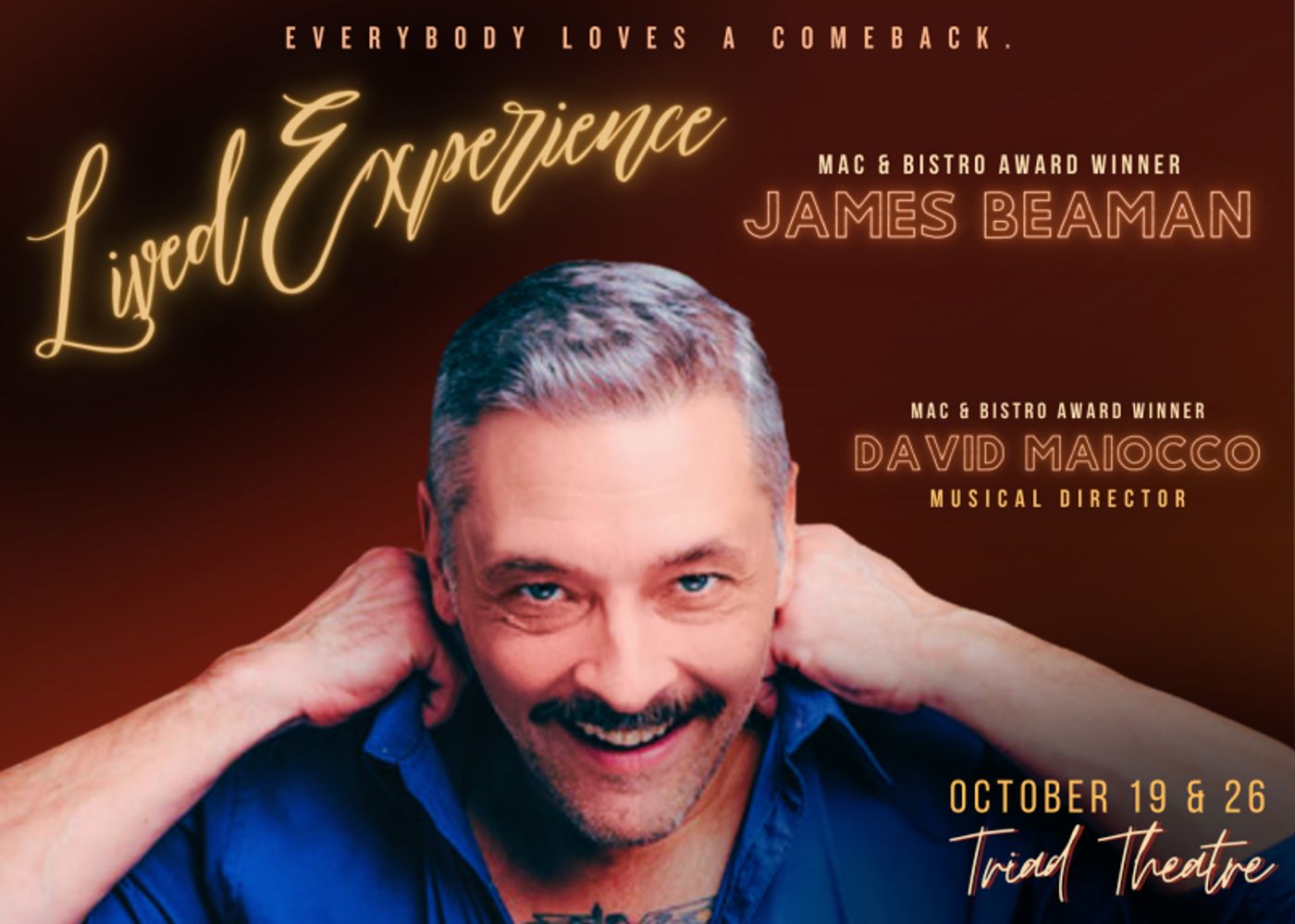
Videos

